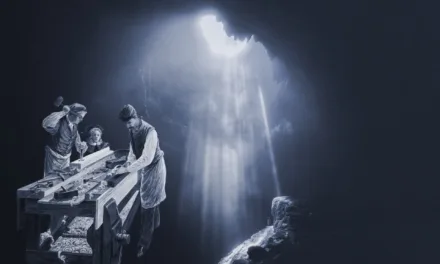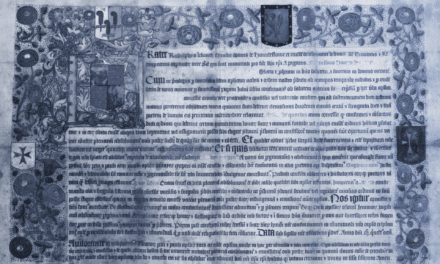
How do you come up with great fantasy names?

“Hello, I want to know what are some ways to come up with names for a non-magical energy source that gives people elemental abilities? I’ve had a few names in mind, but I always feel like I could come up with something better. Can you please help me out?”
Naming elements in your fantasy fiction can feel like a high-stakes decision. Your readers will spend a lot of time with these names throughout your story, so they need to feel both authentic and memorable. The pressure to find the “perfect” name often leads to endless second-guessing, but there are practical considerations that can help you create names that work with your story.
The key to great naming lies in understanding what purpose each name serves in your narrative. Whether you’re creating an energy source, a character, or a location, the name should feel natural within your world while conveying the right tone and associations.
Understanding where your names come from
If we look at the specific example of a magical energy source, then you need to think about what your energy source represents in your story. Ask yourself these questions:
- What are its visual properties? Does it glow, shimmer, or have a distinct appearance?
- How do people interact with it? Is it mined, harvested, absorbed, or channelled?
- What emotions or themes does it represent in your narrative?
- How do different cultures in your world view this energy source?
- What are its limitations or dangers?
- Was it first discovered at a specific location?
- Was there a specific person who first used it or discovered its existence?
These answers will guide your naming process and ensure the name fits naturally into your world-building.
This technique can also be extrapolated to different types of names. For instance, if we consider place names, then they are often named for things like natural features, who discovered them, a misunderstanding of local language by colonisers, or an attempt to make a place name more accessible to a colonising force. With this in mind, then you might ask yourself questions about what kind of history a place has. Who lived there and whether the population has remained static, or whether there are any specific natural wonders that set the place apart.
You can do the same for people, places, objects, or systems. You just need to ask the right questions.
Practical naming strategies
Language borrowing
You can draw inspiration from real languages, particularly Latin, Greek, or other languages that resonate with your world’s aesthetic. But be aware that there should be a legitimate reason for this type of borrowing, especially in fantasy settings. There’s a fine line between appreciation and appropriation.
When your work is inspired by real-world places and cultures, you need to treat that with respect and legitimacy. Don’t just borrow from other languages because you think it sounds cool.
Sound symbolism
Consider how the name sounds when spoken aloud. Hard consonants (K, T, P) can suggest strength and power, while softer sounds (L, M, N) might imply flow or gentleness. For elemental energy, for instance, you might want something that sounds both powerful and natural.
Cultural integration
Think about how different societies in your world might name the same energy source. A scholarly civilisation might use technical terms, while a more spiritual culture might favour poetic or mystical names.
Testing your names
Once you have potential names, test them by:
- Writing them in various contexts within your story.
- Saying them out loud to check for flow and memorability.
- Considering how the characters in your world might abbreviate or nickname naturally.
- Make sure anything you make up doesn’t accidentally resemble existing words.
Remember, the “perfect” name is one that serves your story well, not necessarily the most elaborate or clever option.

Write more, write better, and achieve your goals with Novlr!
Bonus: Coming up with character names
Character names must reflect personality, background, and cultural context while remaining memorable for readers. But it’s also so easy to overthink them. Not every name has to have a deeper meaning (would you believe I sometimes just pick names I like the sound of from film credits??), but if you do want your characters to have more meaningful names, here are some tips:
Consider character background
A meaningful character name should reflect their:
- Cultural or ethnic background.
- Social class or family history.
- Time period of birth.
- Parents’ hopes, values, or circumstances.
Match sound to personality
Certain sounds carry unconscious associations. Sharp, short names (like “Rex” or “Kate”) can suggest directness, while longer, flowing names (like “Seraphina” or “Alexander”) might imply elegance or complexity.
Avoid common pitfalls
- Don’t make names too similar to each other (avoid “Sarah” and “Sara” in the same story).
- Consider how the name will look and sound to your target audience.
- Ensure names are pronounceable enough that readers won’t stumble over them, or give your readers a consistent pronunciation guide if it’s something you want to build into your fantasy setting.
Research tools
- Use name databases from relevant cultures and time periods.
- Use etymology dictionaries to understand name meanings.
- Check historical records for authentic period names.
- Look up modern name trends if writing contemporary fiction.
Bonus: Giving locations memorable names
Place names should feel lived-in and authentic, as if they’ve evolved naturally over time like real-world locations.
Draw from geography
Consider the physical features that would have influenced the original naming:
- Rivers, mountains, or other landmarks.
- Climate and seasonal patterns.
- Natural resources or strategic importance.
- Historical events that occurred there.
Layer naming conventions
Real places often have names that reflect different historical periods. A single location might have:
- An ancient name from the original inhabitants.
- A colonial name imposed by conquerors.
- A modern name reflecting current political realities.
- Multiple names used by different people.
Consider linguistic evolution
Names change over time through common usage. And even if somewhere has an official name, people might use a shortened version of the name in everyday speech.
Where I lived in Melbourne was called the Dandenong Ranges, but everyone just called it “The Dandenongs”. And Wilson’s Promontory National Park, we all just called “The Prom.” Locals will always have their own way of identifying locations, so always keep that in mind.
Maintain internal consistency
Establish naming patterns for different regions or cultures in your world. If one kingdom favours descriptive names like “Goldmeadow” and “Ironbridge,” maintain that pattern throughout that region while developing different conventions for other areas. Or you can draw attention to a location’s difference or significance by subverting that convention.
I know I went a little off track from the original question in expanding out the answer, but the truth is that a lot of naming advice can be used, adapted, and subverted for all types of things. For instance, if a magical element was discovered in a specific location in your world, or was first used by a specific practitioner, then character and setting conventions can play a huge role in how you name your magic systems. Ultimately, it falls into world building. If you build an interesting fantasy world, then it becomes easier to name the elements within it.




























